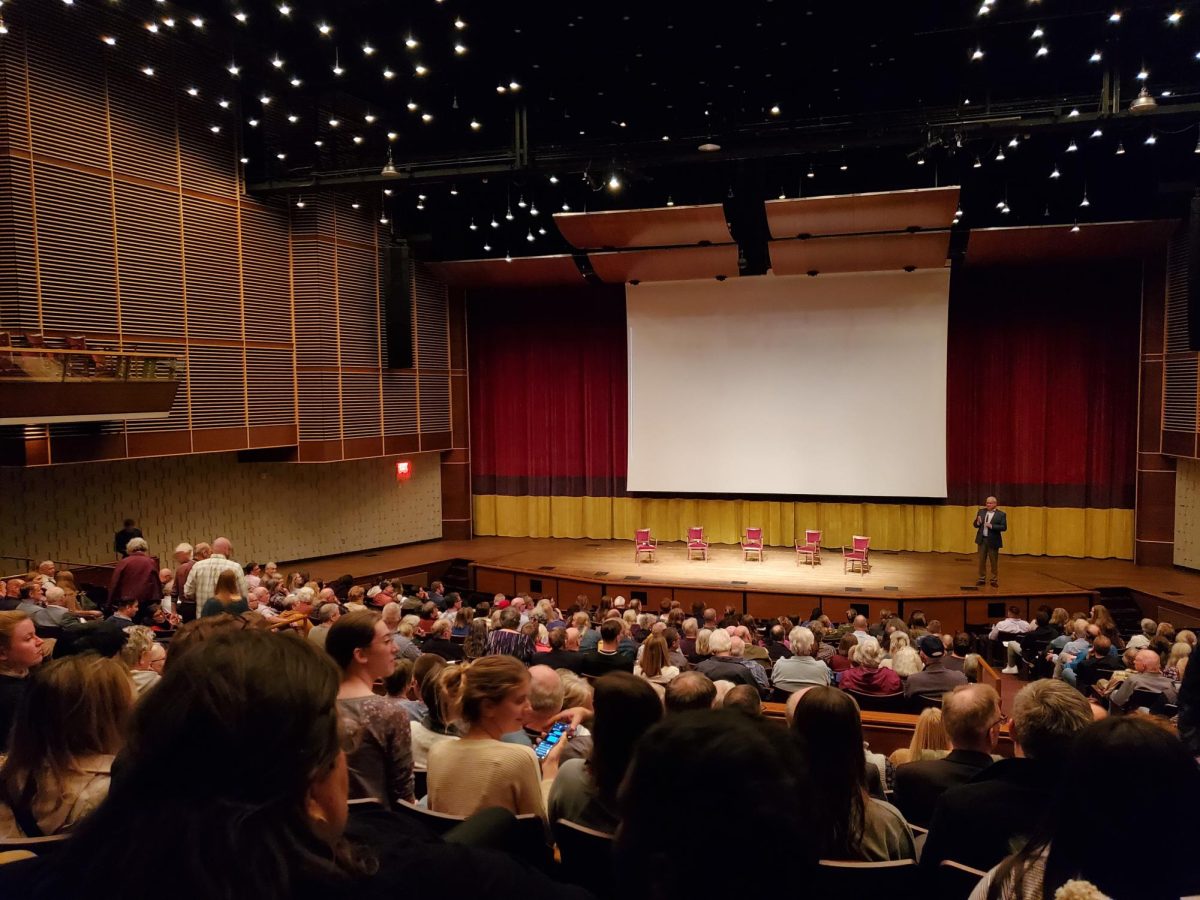Philip Roth is no idiot. Let’s get that out of the way first. But Roth, author of “Zuckerman Unbound,” “Ghost Writer,” “Portnoy’s Complaint” and short stories students will most likely run into in their college literature anthologies, does not understand Wikipedia.
Last week, in an open letter to Wikipedia, Roth spoke with indignation of the Wikipedia page on his novel “The Human Stain.” This is not his first Internet complaint either. This May, Roth also wrote in to The Atlantic referring to the sentence, “As for the personal, Roth, though evidently blessed with decent health, has not enjoyed immunity from life’s distressing hazards, which in his case include a ‘crack-up’ in his mid-50s and two marriages that came to grief.”
Taking issue with the phrase “crack-up,” a note in reference to a reaction that the author had to taking the sleeping medicine Halcion, Roth received an apologetic article in the June issue. It should not be a large surprise that Roth has found fault in another corner of the Internet.
Published by The New Yorker, the author’s letter points out that mistakes were made. He begins the letter saying, “I am Philip Roth. I had reason recently to read for the first time the Wikipedia entry discussing my novel “The Human Stain.” The entry contains a serious misstatement that I would like to ask to have removed. This item entered Wikipedia not from the world of truthfulness but from the babble of literary gossip — there is no truth in it at all.”
So what is Philip Roth angry about? Roth points to a section of the article pertaining to the novel’s inspiration, saying that “The Human Stain” was based on the life of “New York Times” literary critic Anatole Broyard. It is this claim that Roth spends most of his letter fending off. He repeatedly offers up the fact that he never knew Broyard saying,
“I’ve never known, spoken to, or, to my knowledge, been in the company of a single member of Broyard’s family. I did not even know whether he had children.”
He also said, “I never took a meal with Broyard, never went with him to a bar or a ballgame or a dinner party or a restaurant, never saw him at a party I might have attended back in the sixties when I was living in Manhattan and on rare occasions socialized at a party.”
No one blames Roth for feeling frustrated with the article. Wikipedia editors received information from cited critics like Michiko Kakutani and took it at face value. They cited the information carefully, writing less definitively that, “Literary critics, such as Michiko Kakutani, Janet Maslin, Lorrie Moore, Charles Taylor, Touré and Brent Staples have made comparisons between character Coleman Silk and Broyard.” Despite the lack of conclusive statements, Roth is understandably frustrated. But hold on, it gets worse for Roth.
Roth, in efforts to correct Wikipedia’s misleading content, offers corrections, and, in turn, receives a strange response. Roth speaks of this in his letter saying, “Yet when, through an official interlocutor, I recently petitioned Wikipedia to delete this misstatement, along with two others, my interlocutor was told by the ‘English Wikipedia Administrator’ — in a letter dated August 25th and addressed to my interlocutor — that I, Roth, was not a credible source: ‘I understand your point that the author is the greatest authority on their own work,’ writes the Wikipedia Administrator — ‘but we require secondary sources.’” And while there is a certain amount of sympathy that is floating around Roth’s situation in literary circles, it should be pointed out that Roth has purported the blunt of his anger on a misconception. Roth cannot just write to Wikipedia and tell them to change his article because he is the author. Wikipedia needs proof, an identification, to verify Roth’s identity in a world where anyone can publish and edit.
While authors should intrinsically have say in the intended meanings for their books, this is not the problem that Wikipedia has with Roth’s request. Wikipedia’s problem is with legitimacy; not with the denial of an author’s say. Roth seems to claim a righteous anger in that he is not a credible source and, in doing so, misplaces his aggravation.
Despite widespread support of Roth’s frustration, Wikipedia wasn’t ridiculous in waiting for more evidence. The job of Wikipedia administrators is to verify information and, through this event, they legitimize themselves. Wikipedia is being responsible, even if Roth makes them look silly. Part of this miscommunication, though, remains in Roth’s limited knowledge of new journalism technologies and the Internet.
Simply put, Philip Roth is old. He did not grow up on the Internet with bloggers. He grew up with a different institution of knowledge where credibility remains in flux, where the predominant news sources were journalists and not bloggers, where information was not as subject to interpretation as it is today. Yes, Philip Roth grew up a very long time ago, but this does not make his input irrelevant. Instead, Roth’s misunderstanding serves as a conduit for conversation.
We can ask ourselves, what is happening to information that is presented in a medium, like the Internet, where validity and credibility are increasingly in flux? Is the Internet a medium where fact and truth are being radically democratized?
If so, is this a good thing?









